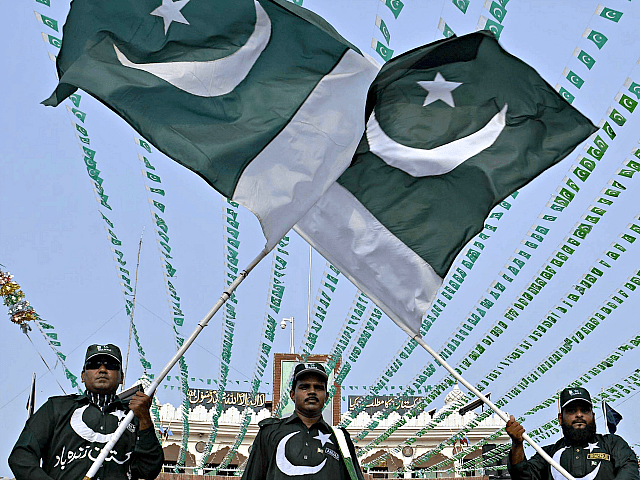Pakistan has stepped up its support for cross-border terrorist factions while the world continues to fight the Chinese coronavirus, Indian officials asserted in a Monday statement to the United Nations General Assembly (UNGA).
Pakistan, an officially Islamic nation sandwiched between India and Afghanistan, has long been a haven for terrorists, garnering enmity from its neighbors.
Indian diplomat Ashish Sharma told the U.N. that “while the world has come to a standstill due to the pandemic, but Pakistan has only enhanced support to cross-border terrorism, taking advantage of the pandemic,” according to the Times of India.
Sharma focused his criticism on the rhetorical support for terrorism and anti-India statements coming from Pakistani leaders.
“Pakistan has resorted to unbridled hate speech trying to foment violence and intolerance in our country,” he asserted. “The hate speech by Pakistan is not merely directed towards one community in India, but also against organizations, individuals, and even against high ranking political leaders.”
Sharma further claimed that Pakistan was working to stir up sectarian strife within India, but that India’s “tradition of pluralism and co-existence” had thwarted the effort.
Watch 📺:
India's Statement at the interactive dialogue with the Special Rapporteur on contemporary forms of racism, racial discrimination, xenophobia and related intolerance: ⤵️ pic.twitter.com/Uq49tn3WHc
— India at UN, NY (@IndiaUNNewYork) November 2, 2020
The governments of India and Pakistan have long jostled for control of Kashmir, a disputed region of the Himalayas at India’s northern extreme, since the British left the subcontinent in 1947 and the subsequent partition of the Raj between the two nations.
Following the British withdrawal, the Maharaja of Kashmir initially pursued a path of independence before opting to join India. The resultant conflict between India and Pakistan ended with the establishment of a ceasefire line, which has since functioned as a de facto border.
India and Pakistan both retain practical sovereignty over portions of Kashmir — along with China which governs the easternmost sliver — and the border issue has been a longstanding source of international concern.
In late September, Turkish Islamist President Recep Tayyip Erdogan weighed in on the matter, expressing support for the Pakistani position. Erdogan’s remarks outraged the Indian government but received a warm reception from Pakistani Prime Minister Imran Khan who thanked him for “raising his voice in support of the rights of the Kashmiri people” in their “struggle for self-determination.”
Pakistan’s belligerence on the matter has only grown, while India continues to combat violent separatists in the region whom they claim receive support from Pakistan.
Pakistan’s Government Deems Anti-Pedophilia Bill ‘Blasphemous,’ ‘Anti-Islamic’ https://t.co/unuIAfN2dY by @EdwinMora83
— Breitbart News (@BreitbartNews) February 3, 2016
Aside from its troubles with India and Kashmir, Pakistan has been a haven for the Taliban – both its Afghan and Pakistani wings – which continue to traverse the Afghanistan border in their near twenty-year struggle against the Islamic Republic of Afghanistan and its ally, the United States.
The Afghan government is currently holding peace talks with the Taliban in Doha, Qatar, in hopes of ending the decades of violence. The Taliban, however, have reportedly staged a significant escalation of attacks on Afghan positions as the negotiations drag on.
Pakistan itself has not gone unscathed by the terrorist activity emanating from within its territory. In late October, a terrorist bombing devastated a madrassa, an Islamic seminary, in the northwestern city of Peshawar, killing at least eight and injuring over 100 more.

COMMENTS
Please let us know if you're having issues with commenting.